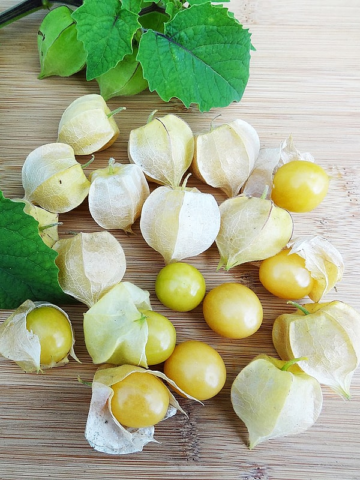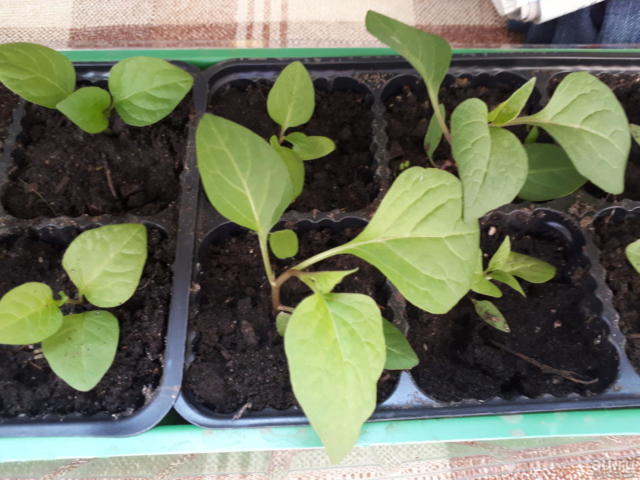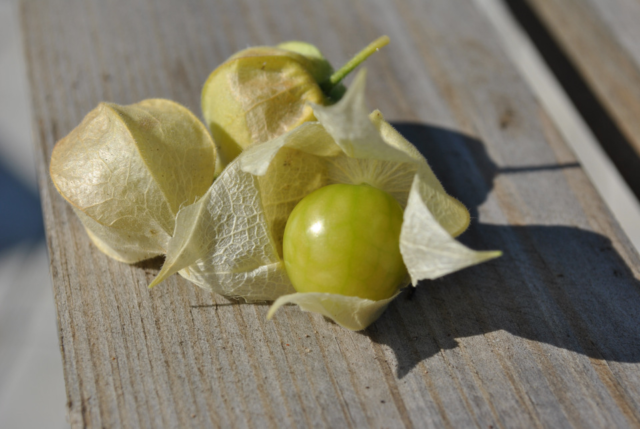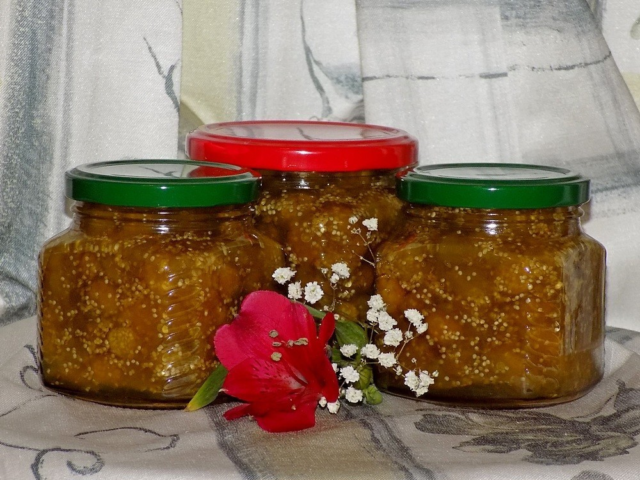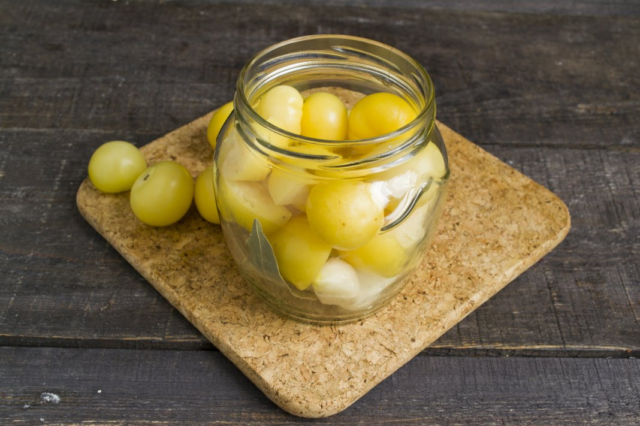Content
Recipes for preparing pineapple physalis for the winter will help you get tasty and healthy preparations. The plant has beneficial properties on the body. It is planted in open ground or grown in seedlings. Provide constant care during the growing season.
Useful properties of pineapple physalis
Physalis is a member of the nightshade family, originating from South and Central America. Shoots are erect, from 50 to 100 cm high. Leaves are thin, opposite, ovoid, with jagged edges. Flowers are solitary, cream or white. Bell-shaped calyx, pointed petals. Fruits are round, yellow-orange, weighing 5-10 g. The pulp is sweet, with a pronounced aroma.
Physalis berries have medicinal properties:
- have diuretic and choleretic effects;
- stop bleeding;
- relieve pain;
- destroy bacteria.
Physalis pineapple is useful for rheumatism, gout, colds, stomach ulcers, gastritis, diabetes, hypertension. The plant removes heavy metals, cholesterol, toxins and decay products.
Fresh berries restore the work of the endocrine and digestive systems, lower blood pressure, relieve inflammation. Due to the low calorie content (53 Kcal per 100 g), the fruits are included in the diet.
It is not recommended to eat the fruits of pineapple physalis with increased acidity of the stomach. Another contraindication is individual berry intolerance.
Growing and caring for pineapple physalis
Below is the process of growing and caring for pineapple physalis with a photo. Planting and caring for a plant has its own characteristics.
Growing pineapple physalis from seeds
In warm climates, seeds are planted directly into open ground. The plant is unpretentious and gives good shoots. The works are carried out in late April - early May. To improve seed germination, they are soaked in a solution of potassium permanganate or growth stimulant. It is enough to plant the plant once, in the future it reproduces by self-seeding.
Physalis pineapple prefers neutral soil. For him, the beds are suitable, where cucumbers, cabbage, onions grew a year earlier. It is not recommended to plant physalis after tomatoes, potatoes, peppers and other nightshades. Crops are prone to similar diseases.
Physalis pineapple seeds remain viable for 4 years. Before planting, they are soaked in a salt solution. Seeds that float to the surface are discarded. The remaining planting material is kept in a solution of potassium permanganate for 30 minutes.
Before planting pineapple physalis, the soil is dug up, fertilized with ash and humus. Seeds are planted in 10 cm increments. The seedlings are thinned out as they germinate and develop. Leave 30 cm between the plants. Thinned seedlings can be transplanted, they will quickly take root in a new place.
Physalis pineapple is planted before winter. At the end of October, the seeds are buried in the ground. Seedlings will appear in the spring. They are thinned out and the strongest specimens are selected.
Growing physalis pineapple seedlings
In the middle lane, pineapple physalis is grown in seedlings.At home, a substrate is prepared: a mixture of peat, humus, turf and sand in a ratio of 2: 1: 1: 0.5. In mid-April, the seeds are etched in a solution of the drug "Fitosporin", then planted in containers.
Physalis pineapple seedlings appear within 7-10 days. When 2-3 leaves appear, the seedlings dive into separate containers. Seedlings are kept in a warm, well-lit place. 2 weeks before disembarkation, it is transferred to the balcony for hardening. At first, the seedlings are covered with paper caps from direct sunlight.
Physalis pineapple is transferred to the beds when the spring frosts pass. 60-70 cm are kept between the plants. For planting physalis, holes are prepared. The seedlings are deepened into the soil to the first leaf. The soil is compacted and watered abundantly.
Care features
Physalis pineapple care includes:
- moderate watering;
- top dressing;
- hilling bushes;
- loosening the soil;
- tying to a support;
- weeding weeds.
Physalis pineapple is regularly watered as the soil dries. To prevent stagnation of water, the soil is loosened after rain or moisture. In early spring, the plant is fed with infusion of mullein or chicken droppings. During flowering and fruiting, 30 g of superphosphate and potassium salt are embedded in the soil. Fertilizers can be added to 10 water and poured over the soil with a solution. The plant is fed no more than once every 2 weeks.
Physalis pineapple does not require pruning and pinching. The fruits are formed in the branches. The more shoots grow, the higher the final yield. The bushes are tied to a support so that they do not lean to the ground.
Diseases and pests
Physalis pineapple rarely gets sick. Most often, diseases appear in the absence of care, as well as in cold and damp weather. The plant is affected by the mosaic, as a result of which light and dark spots appear on the leaves. The disease is viral in nature and cannot be treated. The affected bush is dug up and destroyed.
Physalis may suffer from late blight during the harvest. Dark spots appear on the fruit, which grow rapidly. Such a crop is not edible. To prevent the disease, the bushes are sprayed with Bordeaux liquid.
Physalis is susceptible to attack by a wireworm and a bear. To protect the bush, traps with vegetable bait are prepared. Spraying with a solution of the drug "Iskra" or "Fundazol" is also effective. In the fall, they must dig up a site, then the insect larvae will be on the surface and die from the cold.
Harvesting
The fruits of pineapple physalis are harvested from the end of July until the onset of the first cold weather. They are removed from the shoots together with the shell. A dry, cloudy day is chosen for cleaning. The crop is stored for a long time in a cool dry place.
What to cook from pineapple physalis for the winter
Jam, jams and compotes are made from pineapple physalis. If you dry the berries, you can use them as a dessert.
Jam
Jam ingredients:
- ripe fruits - 600 g;
- granulated sugar - 800 g;
- cinnamon - 2 pcs.
Recipe for winter jam from pineapple physalis:
- The berries are peeled, washed and pierced with a needle.
- The mass is poured into a saucepan, sugar is added and left for half an hour.
- Then add a glass of water and put the container on low heat.
- The mass is stirred until the sugar is completely dissolved and 4 cinnamon sticks are added.
- The jam is boiled for 5 minutes, then the fire is muted and kept on the stove for 2 hours.
- The finished product is laid out in banks.
Jam
To make jam, the following set of products is required:
- ripe berries - 1 kg;
- sugar - 1 kg;
- water - 1 glass.
A simple jam recipe:
- The fruits are peeled, washed and dried on a towel.
- Physalis is poured into a saucepan, water is added and put on fire.
- The mass is boiled for 20 minutes until the berries are completely softened.
- When the pulp is boiled, add sugar.
- The jam is kept on low heat for another 25 minutes, until a homogeneous consistency is obtained.
- Ready jam is laid out in sterilized jars for the winter.
Candied fruit
Candied fruits are fruits cooked in sweet syrup. This dessert can be obtained from physalis. The process is quite simple, but it takes a lot of time.
Main Ingredients:
- berries - 1 kg;
- sugar - 1.2 kg;
- water - 0.3 l.
Candied fruit recipe:
- The berries are removed from the boxes, washed and poured with boiling water for 2 minutes.
This will remove the top layer that contains the sticky odorless substance. - The fruits are washed with cold water, then pierced with a needle.
- A syrup consisting of water and sugar is placed on the stove to cook. The liquid is boiled, then the fire is muffled and the granulated sugar is allowed to dissolve.
- The berries are dipped in hot syrup and boiled for 5 minutes. Then the stove is turned off and the mass is left for 8 hours in room conditions.
- The process is repeated 5 more times.
- When the last cooking is completed, the berries are transferred into a colander and wait for the syrup to drain.
- The fruits are laid out on sheets of parchment and dried for 5-7 days.
- Candied fruits are sprinkled with icing sugar and stored in a cool, dark place.
Compote
To get a delicious drink you will need:
- fruits of pineapple physalis - 800 g;
- sugar - 400 g
Algorithm for preparing pineapple physalis compote:
- Ripe fruits are cleaned and washed under running water.
- The resulting mass is transferred to a saucepan and scalded with boiling water.
- The berries are cooled in cold water.
- The container is put on fire and sugar is added.
- The fruits are boiled until they are soft.
- The finished compote is poured into sterilized jars and covered with lids for the winter.
Raisins
To prepare raisins from physalis, take the required amount of berries. Dried fruits are added to muesli, salads and yoghurts. They can be used as a seasoning for soups and main courses.
The procedure for obtaining raisins from pineapple physalis:
- The berries are peeled and blanched with boiling water. Then remove a thin transparent peel from them.
- The fruits are laid out on a baking sheet in one layer.
- Turn on the oven at 60 ° C and put the berries to dry.
- The finished raisins are stored in a cool dark place.
If weather conditions permit, pineapple physalis berries are left outside in direct sunlight. A convenient way to get raisins is to use electric dryers.
Reviews of physalis pineapple
Conclusion
Recipes for preparing pineapple physalis for the winter allow you to get delicious desserts and drinks. To get a harvest, they follow the rules of planting and caring for the plant. The plant is unpretentious and requires minimal care: watering, fertilizing, weeding.
